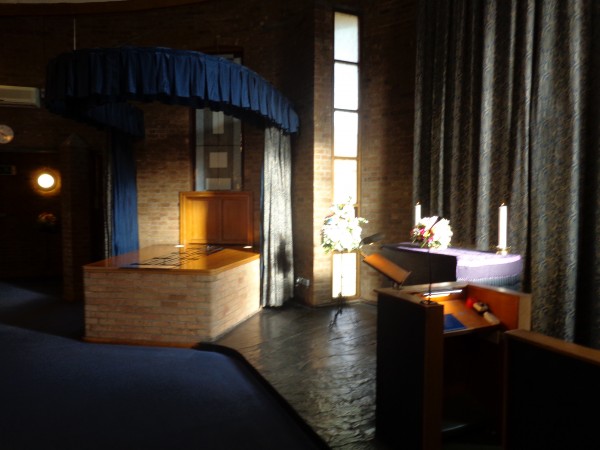
by Michael | Jun 8, 2020 | Blog
The funeral industry took quite a bashing in Hannah Betts’ recent article in ‘The Telegraph Magazine’ (01.02.20) (with statistics provided by Sunlife).
It wasn’t
all bad news, but much of it was probably quite eye-opening.
In England in the last couple of years pre-COVID, there were over 500,000 deaths/year, and this is expected to increase to 565,000 by 2032. There are increasing space issues regarding burial which need to be met. However, c. 78% of UK funerals are now cremations.
Expenses
The average
cost of a basic UK funeral (not counting flowers and catering) was over £4,000
in 2019. That’s a huge increase since 2004, when it was less than £2,000.
For the
whole works, including professional fees, the average amounted to nearly £9,500.
Apart from burial or cremation fees, there are usually funeral director’s fees
to consider and officiant’s fees. If you’re having a memorial, this can be a
major expense (around £900) and catering costs an average of over £400. There
may also be venue hire. Smaller expenses (but they all add up) are Order of
Service booklets, doctor’s fees, limousine hire, flowers and the death notice.
However,
there’s now a groundswell towards choice. Things don’t have to be done the way
they ‘always’ have been. Whereas some people are fine with the Funeral
Directors in traditional top hat and tails, some people prefer informality.
Indeed, a direct cremation (no ceremony at all) is a cheap option (although not
for everyone).
Green
Ceremonies
Some Funeral
Directors offer budget ceremonies, but, again, it depends on what you want on
the day. There is a lot more awareness of ecology, and you can request green
burials with biodegradable coffins. Crematoria have improved massively and
emissions are cleaner, but carbon is still one of the by-products of the
process. Green or liquid cremations are much less damaging.
Embalming
(to preserve bodies to be viewed by relatives) requires use of formaldehyde for
each body, and this is a carcinogen.
Choice
At a cost,
you can choose unusual venues (such as golf courses) and use special hearses (like
camper vans or fire engines). The service can be personalised, both content,
tone and attire.
Many
funerals these days offer live-streaming facilities.
Add-ons
Basic burial
costs over £1,000 more than cremation on average, but this is region-dependent (it
costs some £4,000 more to be buried in London compared with Northern Ireland).
Summary
As a funeral celebrant, I am one of the “expenses”. Of course. I don’t believe I have to justify my fee, as I normally work with the bereaved to compile, in a short time, a celebration of life that entirely fits the bill. Then I conduct the service – usually, to the family’s (and guests’) complete satisfaction. It takes skill and empathy.
It seems right
that there are fees across the board, although some seem excessive. I suspect
that certain suppliers are taking advantage of clients’ vulnerability and
ignorance. However, I have worked with many who do a fantastic job and deserve
to be rewarded.
The great
thing is that now there is choice out there, and each person has the chance to
get value for their money. Hopefully, the funeral comes down to more than money
finally, but that’s certainly an issue that is rightly being addressed.
Michael can
put together and conduct a personalised ceremony. Feel free to contact him
directly.
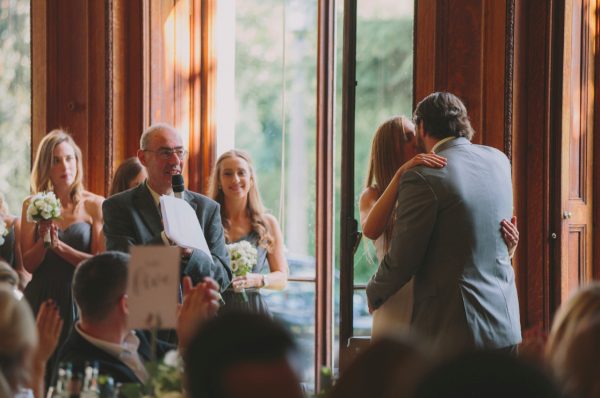
by Michael | Dec 3, 2018 | Blog
There’s a convincing case for celebrating a wedding anniversary with a Vow Renewal. In fact, I can suggest a number of good reasons.
- You’re approaching your first anniversary – or a year that ends in 5 or 0. That’s an achievement that deserves to be marked!
- You simply want publicly to demonstrate your affection and the strength of your relationship
- Your circumstances have changed since your marriage – maybe you have children now. You may even want them to be involved in the ceremony
- Perhaps your wedding was small or, for whatever reason, a bit of a disappointment
- Maybe your circle of friends and relatives have changed, and you want the new ones to be part of your big event
- Your relationship might have successfully come through hard times (illness, finance, etc.) and you want to mark that
- You might simply welcome the excuse to throw a special party
Why go to the trouble?
A terribly bad reason – but valid, nonetheless – probably suits men, rather than women. Maybe you’re coming round to a big anniversary. You might be looking around for a present for your spouse, but you don’t know what to do. You could go for a Vow Renewal! The gesture could well be a very welcome surprise, even if secrecy can probably not be maintained very long.
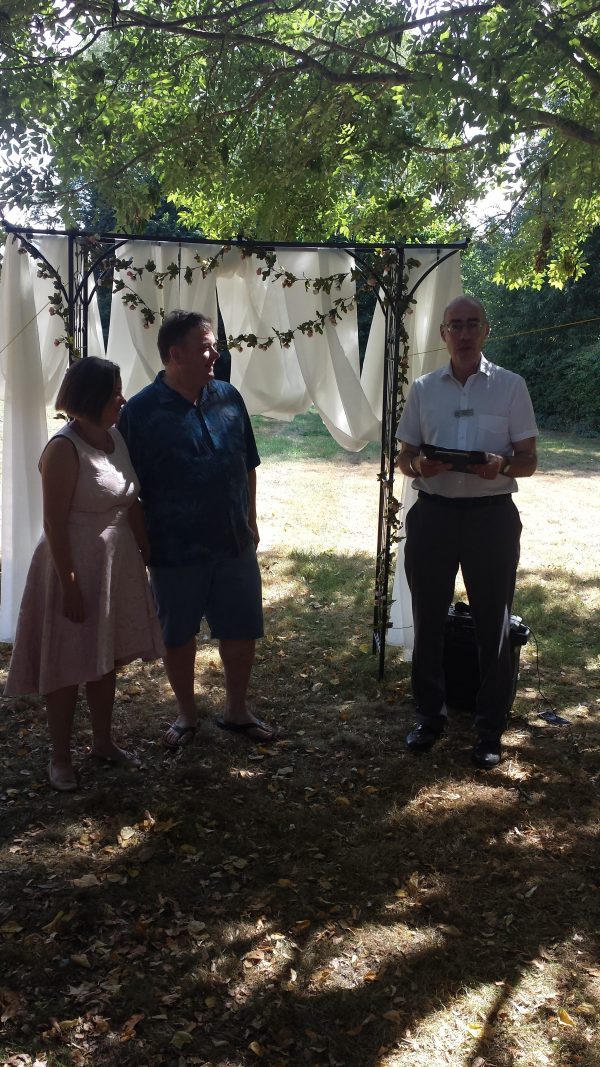
What would it entail?
One thing it would NOT entail is repeating all the arrangements for your wedding. This time it is all about free choice.
- You don’t have to go through any legal formalities
- You can have the ceremony of your choice – no need to be restricted to full religious or secular Register Office ceremony. There’s no fixed, standard ceremony that you have to follow. It can be quite informal, if you want. Speak to a civil celebrant for ideas.
- You may decide to rewrite your vows. They may no longer be relevant to you now. Your civil celebrant will be able to help you with this.
- The budget is down to you. This means that you are not reliant on your parents (and dependent on their wishes and choices). You can decide how much you are prepared to spend and keep it at that. You can decide on what (if any) entertainment will be on offer.
- The venue is entirely your choice. You can be quirky and allow your personalities to shine through! The world is (more or less!) your oyster!
- Most importantly, the guest list is down to you! No battles or squabbles this time!
A vow renewal is a joyous, beautiful occasion. You can make of it what you will, but you will always have your civil celebrant to advise, guide and even inspire you.
What an opportunity!
Main photo: www.mckinley_rodgers.com
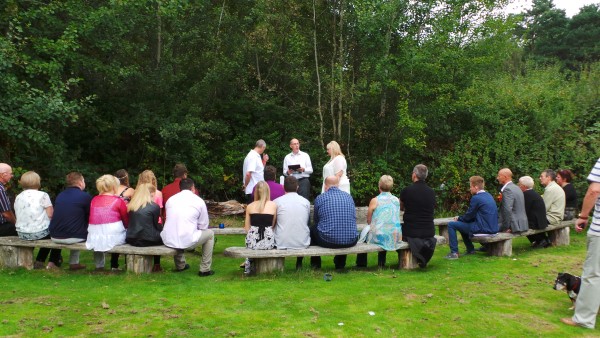
by Michael | May 3, 2016 | Blog
It can be a major mistake to overlook the opportunity to celebrate a Vow Renewal.
Some people assume that it’s simply an excuse to blow a load of money. Others don’t see the point: so what, if it’s my tenth (or whatever) year of marriage?
But you could really be missing out on something special.
Something special
What if you could come away from your Vow Renewal feeling the same as this couple?
“Thank you being our celebrant and putting together our vow renewal, the words felt very personal to us which made it quite an emotionally fuelled ceremony that just flowed but embraced everything we wanted with the readings, blessings of our rings, lighting of our unity candles and finally the signing of our certificate. Our friends and family all commented on how we always do things a bit different and this ceremony and celebration exceeded that. Thank you x”
[C & D – Genuine testimonial]
So what is a Vow renewal?
Essentially, it is an opportunity to reaffirm publicly your marital relationship. You may want to mark a special milestone year – or a new time in your marriage (following ill health, financial difficulties or even a rocky relationship).
Unlike your wedding, there are no legalities to worry about. The ceremony can be as lavish or modest as you choose. It can take place in a back garden, beside a canal, in a hotel or at the top of the Shard. You choose.
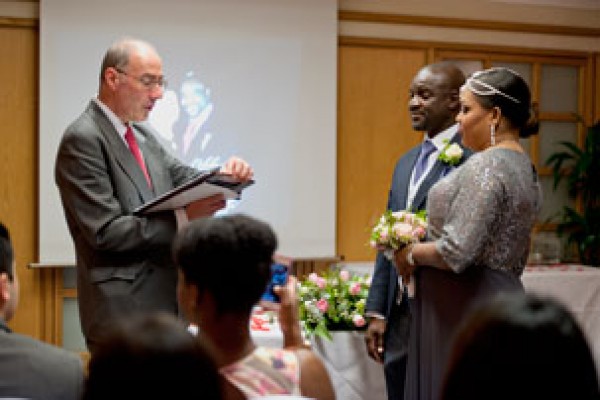
How is the occasion marked?
There is no prescribed ceremony, so if you want a religious or part-religious service, that’s fine. Secular is also fine! You want to dress up formally? Fine too! Or come casually? Why not?
How about including friends and/or relatives in the ceremony? Maybe you’ve got children and you want to involve them? You could include the lovely Unity Candle ritual. You might consider a handfasting.
You may want to have your rings blessed or recite your vows (your marriage ones, or a new set, if things have changed). You may want to play your favourite band’s music. The choice is huge.
How you mark the occasion is absolutely up to you (though your celebrant will gladly guide and inspire you!).
How to arrange it?
This is likely to be a much more informal affair than a wedding. You may or may not offer a reception. It might be a buffet. You can hold it at a place that means something special to the two of you.
You will probably only need to do the following tasks as a minimum:
- Book a venue (unless you’re using your back garden, say)
- Organise the reception (according to the scale you are envisaging)
- Book your civil celebrant
- Send out invitations
So you can have the people you love and choose around you, as you celebrate your special occasion in the way that you want and dream of.
Isn’t that worth considering?
Michael would be delighted to give you more information or help you arrange your ceremony. Just contact him for a non-obligation chat.

by Michael | Dec 15, 2015 | Blog
Is there any freedom to choose your wedding ceremony?
What if a full religious wedding doesn’t rock your boat?
The non-religious ceremony offered by the Register Office will tick some people’s boxes, but it is standardised. There’s nothing personal or special about it.
What if you could go to the Register Office in the morning in your jeans, with a couple of witnesses, to sign the marriage certificate – and then enjoy a wonderful, joyous ceremony in the afternoon or the next day with all your guests?
Nowadays, that is a possibility.
And your celebrant can really help you.
As long as the legal bit is still carried out, there’s nothing to stop you holding the ceremony you actually want – at the venue you want.
The Ceremony
One of the beauties about a celebrant-led wedding is that you will receive help (as much or as little as you want!) to build your own ceremony. So if you do want a religious component (and you are welcome to draw from various cultural sources), you can put it in; if you want spiritual elements, that’s absolutely possible; choosing your favourite poems and readings is an option that can contribute such a lot. Usually, you’ll be able to please yourselves AND keep your parents happy!
As well as the readings, you decide on the music. You also decide on the choreography (who walks or stands where), readers, the wording, and recital of the Vows. Your celebrant will be pleased to advise and make helpful suggestions. (This process of getting the ‘script’ word-perfect, usually conducted by e-mail, may take a number of e-mails.)
Ritual
You will be able to incorporate any rituals and little touches that would not otherwise have been possible, if you so wish. For example, why not drink together from a loving cup, light a Unity Candle or celebrate a handfasting (an ancient Celtic betrothal ritual)?
Conclusion
In short, this is YOUR day, and your celebrant, who will of course conduct the ceremony for you, will do everything to ensure that the day is unforgettable, meaningful and what YOU want.
Unlike previous generations, you have the freedom to choose every single thing about your ceremony, so that it fits in totally with your personal beliefs and wishes. Why shouldn’t your big day be exactly what you want it to be?
Let your civil celebrant work with you to ensure you achieve that rare goal of turning your dreams into reality.






